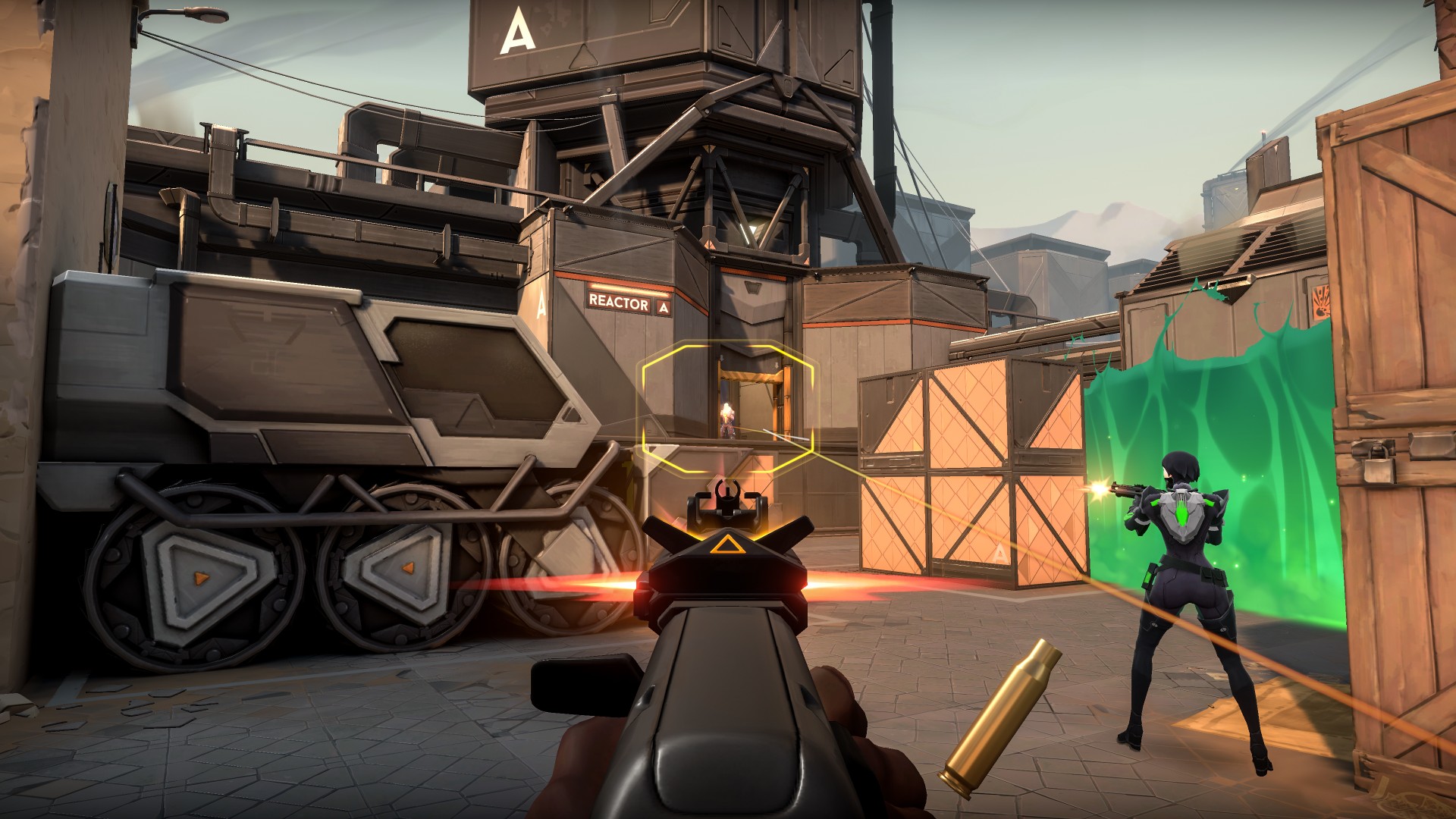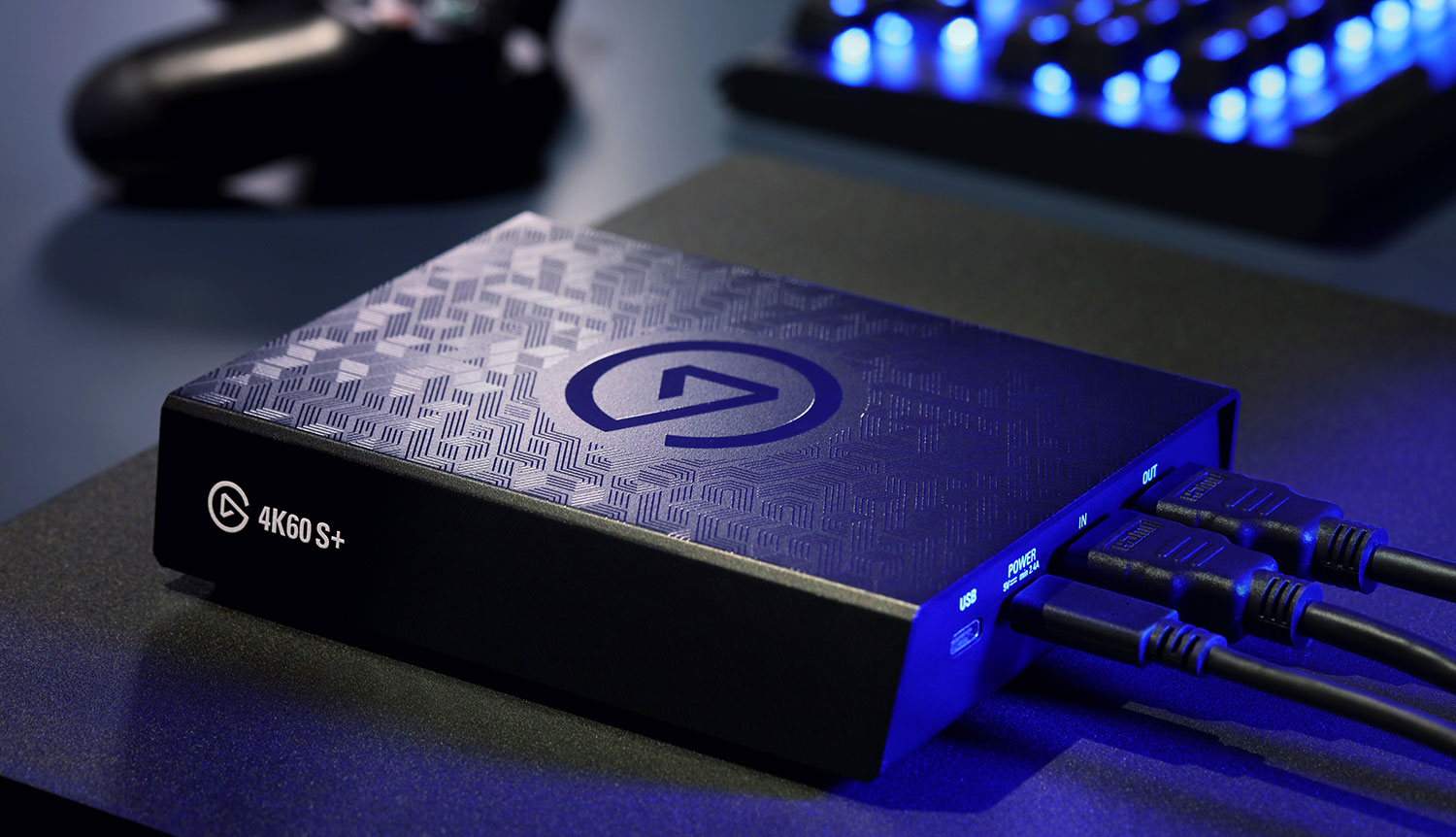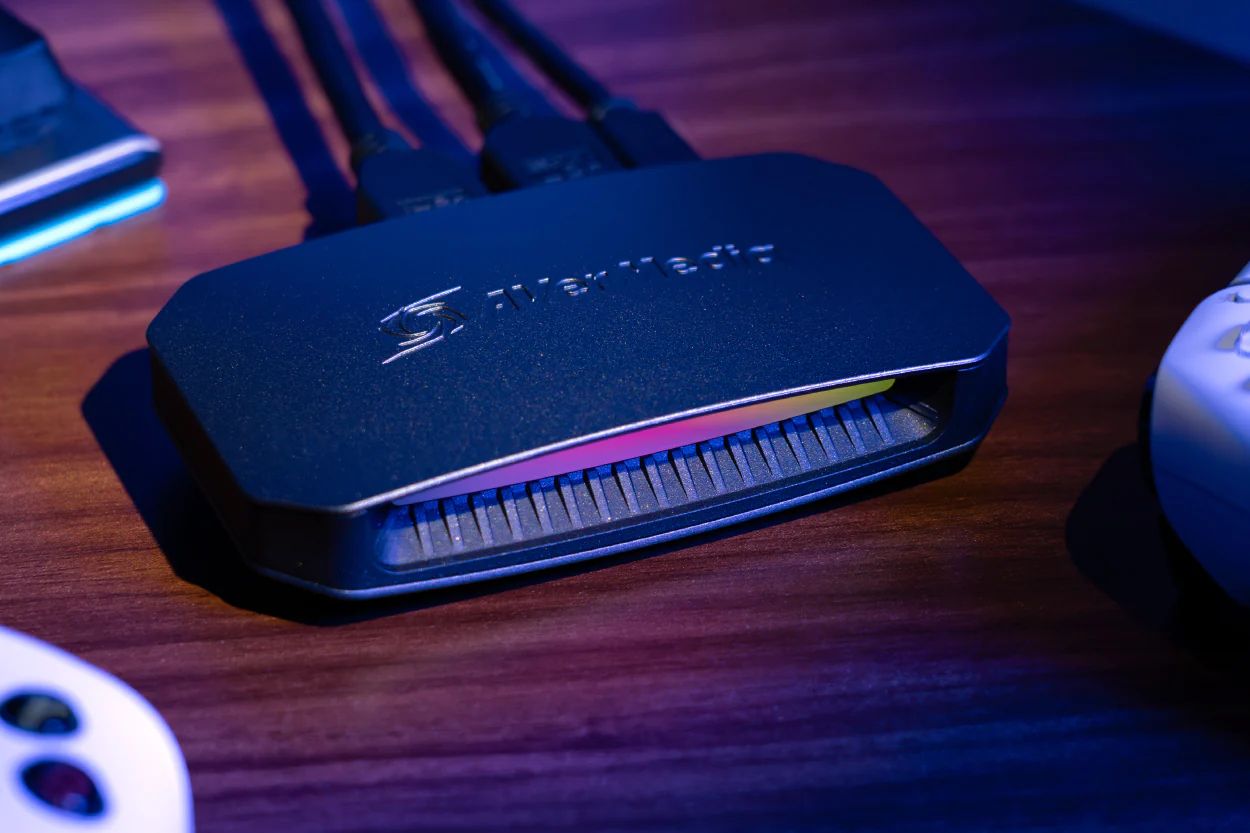Introduction
When it comes to online gaming, there are many factors that can contribute to the overall experience. From graphics and gameplay mechanics to connectivity and performance, every aspect plays a vital role in ensuring an enjoyable gaming session. One crucial factor that often gets overlooked is the Frames Per Second (FPS) of the game.
FPS refers to the number of frames or images displayed per second in a video game. It directly impacts the smoothness and fluidity of the gameplay. The higher the FPS, the more responsive and immersive the gaming experience becomes. On the other hand, a low FPS can lead to lag, stuttering, and a sluggish response, which can significantly diminish the overall enjoyment.
Why does FPS matter so much in online gaming? Well, imagine you’re playing a fast-paced action game, and your character’s movements aren’t smooth because of low FPS. It can be frustrating and can even give your opponents an advantage. In competitive gaming, a split-second delay or a missed frame can make all the difference between winning and losing.
So what is considered a good FPS for online gaming? The answer depends on various factors, including the type of game, the hardware of your gaming system, and personal preferences. However, there are some minimum requirements and recommended standards that can help determine a good FPS for most online games.
In this article, we will explore the significance of FPS in online gaming and its impact on the overall gaming experience. We will also discuss the minimum FPS requirements for smooth gameplay, recommended FPS for different game genres, factors that affect FPS, ways to improve FPS, and the importance of a good internet connection for optimal FPS performance. By the end of this article, you’ll have a deeper understanding of the role FPS plays in online gaming and how you can enhance your gaming experience by achieving a good FPS.
Understanding FPS (Frames Per Second)
Before diving into the importance of FPS in online gaming, let’s first understand what FPS actually means. Frames Per Second, commonly abbreviated as FPS, refers to the number of frames or images displayed per second in a video game. Each frame represents a single image, and when displayed rapidly, they create the illusion of motion, resulting in a smooth and continuous animation.
The concept of FPS can be compared to a flipbook or a series of pictures displayed in quick succession. The higher the FPS, the more frames are displayed per second, resulting in smoother and more lifelike animations. Conversely, a lower FPS means fewer frames and can lead to jerky movements and a less immersive experience.
Most modern games aim for a minimum of 30 FPS to provide a decent level of smoothness. However, for a truly fluid and responsive gaming experience, many gamers prefer to achieve FPS rates of 60 or even higher. This high FPS ensures that the game reacts instantly to the player’s inputs, making the gameplay feel more immersive and engaging.
It’s worth noting that while high FPS is desirable, achieving it requires a powerful gaming system. The performance of your computer’s hardware, including the CPU, GPU, and RAM, plays a crucial role in determining the maximum FPS you can achieve. If your hardware is not up to par, you may need to adjust your settings or upgrade your system to reach higher FPS.
Furthermore, it’s important to differentiate between the FPS displayed in-game and the FPS displayed on your monitor. In-game FPS measures the number of frames rendered by the game engine, while monitor FPS (refresh rate) determines how many frames your monitor can display per second. To fully enjoy high FPS, it’s recommended to have a monitor with a high refresh rate, such as 144Hz or 240Hz.
Now that we have a clear understanding of what FPS is and how it relates to gaming, let’s move on to exploring the impact of FPS on the overall online gaming experience. By maintaining a high FPS, you can ensure smooth gameplay, reduce input lag, and gain a competitive advantage over opponents. In the next section, we’ll delve deeper into how FPS affects online gaming.
How FPS Affects Online Gaming Experience
When it comes to online gaming, the FPS of a game can have a significant impact on the overall gaming experience. Here are a few ways in which FPS affects online gaming:
- Smoothness and Responsiveness: A higher FPS ensures a smoother and more responsive gameplay experience. With a high FPS, the movements of your character, interactions with the environment, and responsiveness to your inputs become more fluid and natural. This enhances immersion and makes the game feel more enjoyable to play.
- Reduced Input Lag: Input lag refers to the delay between pressing a button or moving your mouse and the corresponding action happening on the screen. A high FPS helps reduce input lag, making your actions feel instant and precise. This is crucial, especially in fast-paced online games where split-second reactions can determine the outcome of battles or competitions.
- Visual Clarity: Higher FPS leads to a clearer and more detailed display of the game’s visuals. When the game is running at a lower FPS, the images may appear blurry or stutter due to the limited number of frames being displayed per second. By maintaining a high FPS, the graphics become sharper, allowing you to better appreciate the game’s aesthetics and details.
- Seamless Multiplayer Experience: Online gaming often involves playing with or against other players in real-time. Having a high FPS ensures that the actions of other players are rendered smoothly on your screen, making it easier to track their movements and react accordingly. This enhances the overall synchronization between players, creating a more seamless multiplayer experience.
- Competitive Advantage: In competitive online gaming, where milliseconds can make the difference between winning and losing, a high FPS can provide a crucial advantage. By maintaining a high FPS, you can react faster to in-game situations, aim more accurately, and execute strategies with precision. This can give you a significant edge over opponents, increasing your chances of success.
Overall, a higher FPS contributes to a more immersive, responsive, and visually appealing online gaming experience. It not only enhances the enjoyment of playing games but also improves your performance in competitive scenarios. However, it’s important to remember that achieving a high FPS requires both capable hardware and optimized in-game settings. In the next section, we will discuss the minimum FPS requirements for smooth gameplay in online gaming.
Minimum FPS Requirements for Smooth Gameplay
Smooth gameplay is essential for an enjoyable online gaming experience. To achieve smoothness, there are minimum FPS requirements that your system should meet. These requirements ensure that the game runs without significant lag or stuttering. While the exact minimum FPS required can vary depending on the game and personal preferences, there are some general guidelines to consider.
For most online games, a minimum FPS of 30 is considered acceptable. This means that the game should be able to consistently display at least 30 frames per second to maintain a relatively smooth experience. However, keep in mind that 30 FPS may not provide the optimum level of responsiveness and fluidity, particularly in fast-paced games.
For a more enjoyable gaming experience, many gamers aim for a minimum of 60 FPS. This higher FPS ensures smoother animations, reduced input lag, and improved visual clarity. Games with high-intensity action, competitive gameplay, or complex graphics may benefit greatly from a higher FPS.
It’s important to note that the minimum FPS requirements can also depend on the genre of the game. Games with slower-paced gameplay, such as strategy or turn-based games, may still feel relatively smooth even with lower FPS. On the other hand, first-person shooters, racing games, or fighting games typically require a higher FPS to maintain responsiveness and precision.
Additionally, the requirements can vary based on personal preferences. Some gamers are more sensitive to frame drops or stuttering, while others may not notice them as much. Experimenting with different FPS settings can help you find the balance between smooth gameplay and visual quality that suits your preferences.
It’s worth mentioning that meeting the minimum FPS requirements often entails setting the graphics settings to a lower level or adjusting other in-game settings. If your system struggles to maintain the desired FPS, you may need to lower the resolution, reduce graphical effects, or disable certain features that put a strain on your hardware.
Ultimately, the minimum FPS requirements for smooth gameplay can differ from game to game and player to player. It’s essential to find a balance that gives you a satisfactory level of smoothness while maintaining decent visuals. In the next section, we will explore the recommended FPS for different game genres to further enhance your gaming experience.
Recommended FPS for Different Game Genres
While the minimum FPS requirements ensure a baseline level of smooth gameplay, the recommended FPS varies depending on the genre of the game. Different game genres have unique gameplay dynamics, graphics requirements, and competitive elements that may benefit from higher FPS. Let’s explore the recommended FPS for some popular game genres:
- First-Person Shooters (FPS): In fast-paced shooters, where split-second reactions and precise aiming are crucial, a higher FPS is recommended. Many competitive FPS players aim for at least 60 FPS to ensure smooth gameplay and reduce input lag. Some professional players even strive for 144 FPS or higher, as it can give a competitive edge in terms of responsiveness and accuracy.
- Role-Playing Games (RPG): RPGs typically have a slower pace and focus more on story, exploration, and character development. While a 60 FPS experience is still desirable, RPGs are generally more forgiving in terms of FPS requirements. Players can still enjoy the immersive and rich narratives of RPGs with a minimum of 30 FPS, although higher FPS can enhance the fluidity of combat and in-game animations.
- Racing Games: Racing games often feature high-speed action and require quick reflexes and precise maneuvers. For an optimal experience, many racing game enthusiasts target a minimum of 60 FPS to capture the fast-paced nature of the genre accurately. Higher FPS can help reduce motion blur and provide a more immersive racing experience.
- Strategy Games: Strategy games, such as real-time strategy (RTS) and turn-based strategy (TBS), place a higher emphasis on tactical gameplay, long-term planning, and resource management. While higher FPS can improve the smoothness of animations, strategy games are less demanding in terms of FPS requirements. A minimum of 30 FPS is often sufficient for enjoying the strategic depth and complexities of these games.
- Massively Multiplayer Online (MMO) Games: MMOs encompass a wide range of gameplay styles and genres, from fantasy RPGs to online shooters. The recommended FPS for MMO games varies depending on their specific requirements. However, most MMO players find that 60 FPS provides a smooth and visually appealing experience, especially during intense battles and crowded areas.
These recommendations are not set in stone and can vary from player to player. Some individuals may prefer higher FPS in any genre, while others may be more lenient. It’s essential to consider your hardware capabilities, personal preferences, and the specific demands of the game when determining the ideal FPS settings for your gaming experience.
Now that we have explored the recommended FPS for different game genres, let’s move on to discussing the factors that can affect FPS in online gaming and how to improve your FPS performance.
Factors That Affect FPS in Online Gaming
FPS performance in online gaming can be influenced by various factors, both hardware- and software-related. Understanding these factors can help you identify and address issues that may impact your game’s FPS. Here are some key factors that can affect FPS in online gaming:
- Hardware Specifications: The performance of your gaming system’s hardware is a primary factor in determining FPS. The graphics processing unit (GPU), central processing unit (CPU), and random-access memory (RAM) all play crucial roles. Outdated or underpowered hardware may struggle to meet the demands of modern games, resulting in lower FPS.
- Graphics Settings: The in-game graphics settings can greatly impact FPS. Higher graphical settings, such as higher resolutions, anti-aliasing, or detailed textures, require more processing power and can lead to a decrease in FPS. Adjusting these settings to a lower level can significantly improve FPS without sacrificing too much visual quality.
- Background Processes: Other applications running in the background of your computer can consume system resources and affect FPS. Close unnecessary programs and processes before launching the game to free up resources and ensure optimal performance.
- Driver Issues: Outdated or incompatible graphics drivers can cause FPS drops or instability in games. It is important to keep your graphics card drivers up to date to ensure compatibility with the latest games and optimize performance.
- Network Connection: In online gaming, a stable and low-latency network connection is crucial for smooth gameplay. High latency or packet loss can result in delays or interruptions, affecting both online FPS and the overall gaming experience. Opting for a wired ethernet connection instead of Wi-Fi can help reduce network-related FPS issues.
- Server Performance: When playing online games, the performance of the game’s servers can impact FPS. If the servers are experiencing high loads or performance issues, it can result in lag and lower FPS for all players on the server. Choosing servers with lower ping and better performance can help maintain a consistent FPS.
- Overheating: Excessive heat can hamper the performance of your hardware, including the CPU and GPU, leading to decreased FPS. Ensure that your system is properly cooled and free from dust to prevent overheating and maintain optimal performance.
By considering these factors and addressing any issues that may arise, you can optimize your system for better FPS performance in online gaming. In the next section, we will explore some ways to improve FPS and enhance your overall gaming experience.
Ways to Improve FPS in Online Gaming
Having a high and stable FPS in online gaming is crucial for a smooth and enjoyable experience. If you’re experiencing low FPS, there are several ways to improve it. Here are some effective methods to boost FPS in online gaming:
- Adjust Graphics Settings: Lowering the graphical settings in your game can significantly improve FPS. Experiment with reducing the resolution, disabling unnecessary visual effects, lowering texture quality, and adjusting shadow and lighting settings to find the right balance between performance and visual quality.
- Update Graphics Drivers: Regularly update your graphics card drivers to ensure compatibility with the latest games and optimizations for improved FPS performance. Visit the manufacturer’s website or use their software to download and install the latest drivers for your graphics card.
- Close Background Applications: Close any unnecessary programs running in the background to free up system resources. These programs can consume CPU and RAM, impacting game performance and FPS. Use the Task Manager or a third-party software to identify and close resource-intensive processes.
- Defragment Your Hard Drive: If you’re using a traditional hard drive, regular defragmentation can help improve FPS. Fragmented files can lead to slower read and write speeds, impacting game performance. Use the built-in Windows defragmentation tool or a third-party defragmentation software to optimize your hard drive.
- Upgrade Hardware: If you consistently struggle with low FPS, it may be time to consider upgrading your hardware. Upgrading your CPU, GPU, or adding more RAM can provide a significant boost in performance and allow for smoother gameplay with higher FPS.
- Optimize Power Settings: Adjust your computer’s power settings to prioritize performance over energy-saving. Setting your system to high-performance mode can help ensure that your hardware operates at maximum capacity, resulting in improved FPS.
- Clean Cooling System: Overheating can cause hardware to throttle performance, leading to lower FPS. Keep your computer’s cooling system clean and free from dust. Regularly clean the fans and vents to ensure proper airflow and temperature regulation.
- Upgrade to SSD: Consider upgrading to a solid-state drive (SSD) if you’re still using a traditional hard drive. SSDs offer faster read and write speeds, reducing load times and improving overall system performance, including FPS in games.
- Monitor Your System: Use monitoring software to keep an eye on your system’s performance while gaming. This can help identify any resource-intensive processes, high CPU or GPU temperatures, or other issues that may be affecting FPS. With this information, you can take appropriate steps to address the problem.
Implementing these methods can help optimize your system for better FPS in online gaming. It’s important to note that the effectiveness of these methods may vary depending on your specific hardware configuration and the game you’re playing. Experimenting with different settings and combinations will help you find the best configuration for your system and maximize your FPS.
In the next section, we’ll discuss the importance of a good internet connection for achieving optimal FPS in online gaming.
The Importance of a Good Internet Connection for FPS
When it comes to online gaming, having a good internet connection is essential for optimal FPS performance. While hardware specifications play a crucial role in determining FPS on your end, a stable and high-speed internet connection is equally important for smooth and responsive gameplay. Here’s why a good internet connection is vital for FPS in online gaming:
- Reduced Latency: Low latency, or ping, is crucial for fast and responsive online gameplay. Latency refers to the time it takes for data to travel between your device and the game server. A good internet connection with low latency ensures that the information is transmitted quickly, reducing the delay between your actions and their reflection in the game. This leads to a more immediate and smooth gaming experience.
- Consistent Connection Stability: Online gaming requires a stable internet connection to maintain a steady flow of data between your device and the game server. Any interruptions or fluctuations in your internet connection can result in lag spikes and decrease FPS. A good connection stability ensures a constant flow of data, allowing for smoother gameplay without sudden drops in performance.
- Reduced Packet Loss: Packet loss occurs when data packets being transmitted between your device and the game server fail to reach their destination. Even a small amount of packet loss can lead to issues such as delayed actions, stuttering, and lower FPS. A good internet connection helps minimize packet loss, ensuring that the game data is delivered reliably and accurately.
- Bandwidth for Multiplayer: Online multiplayer gaming often involves interacting with other players in real-time. A good internet connection with sufficient bandwidth ensures that there is enough capacity to handle the data exchange between multiple players. This is particularly important in fast-paced multiplayer games where a high FPS is crucial for maintaining synchronization and responsiveness among all players.
- Download and Upload Speeds: A good internet connection with high download and upload speeds allows for faster data transfer between your device and the game server. This is especially important for games that require frequent updates, as well as for participating in online tournaments or streaming gameplay. Faster download speeds ensure that game updates are downloaded quickly, while higher upload speeds facilitate smooth streaming or recording of gameplay without impacting FPS.
- Choosing the Right Server: A good internet connection allows you to connect to game servers with lower ping and better performance. Choosing servers closer to your location reduces the physical distance that data needs to travel, resulting in lower latency and improved FPS. With a stable and fast internet connection, you can enjoy a better overall gaming experience by selecting the most optimal game servers for your location.
Ensuring a good internet connection requires a reliable internet service provider (ISP) and a suitable internet plan. Ideally, you should opt for a high-speed internet plan with low latency and sufficient bandwidth for online gaming. Additionally, using a wired Ethernet connection instead of Wi-Fi can provide a more stable and consistent connection, minimizing potential latency and packet loss issues.
By prioritizing a good internet connection, you can optimize FPS performance in online gaming, reduce lag, and enjoy a smoother and more responsive gaming experience.
Now that we have explored the importance of a good internet connection for FPS in online gaming, let’s conclude our discussion and summarize the key takeaways.
Conclusion
Frames Per Second (FPS) plays a crucial role in the online gaming experience. It directly impacts the smoothness, responsiveness, and overall enjoyment of the game. By maintaining a high FPS, players can immerse themselves in the gameplay, react quickly to in-game situations, and gain a competitive advantage.
While the minimum FPS requirements for smooth gameplay vary depending on the game and genre, aiming for a minimum of 30 FPS is generally acceptable. However, for a truly optimal experience, many gamers strive for a higher FPS, such as 60 FPS or even higher, to ensure smoother animations, reduced input lag, and improved visual clarity.
Several factors can affect FPS in online gaming, including hardware specifications, graphics settings, background processes, network connections, and server performance. Optimizing these factors can lead to improved FPS and a smoother gaming experience.
Some effective methods to improve FPS include adjusting graphics settings, updating graphics drivers, closing unnecessary background applications, defragmenting your hard drive, upgrading hardware, optimizing power settings, cleaning the cooling system, upgrading to an SSD, and monitoring system performance.
In addition to hardware and software optimizations, having a good internet connection is vital for achieving optimal FPS in online gaming. A stable and high-speed internet connection reduces latency, ensures consistent connection stability, minimizes packet loss, provides sufficient bandwidth for multiplayer gaming, and allows for faster data transfers.
By considering these factors and implementing the necessary optimizations, players can enhance their FPS, leading to a smoother, more immersive, and competitive online gaming experience.
So, whether you’re engaging in intense first-person shooters, exploring vibrant open worlds, commanding armies in strategy games, or racing against the best, remember that FPS matters. Strive for a high FPS, optimize your system, and secure a good internet connection to unlock the full potential of your online gaming adventures.

























